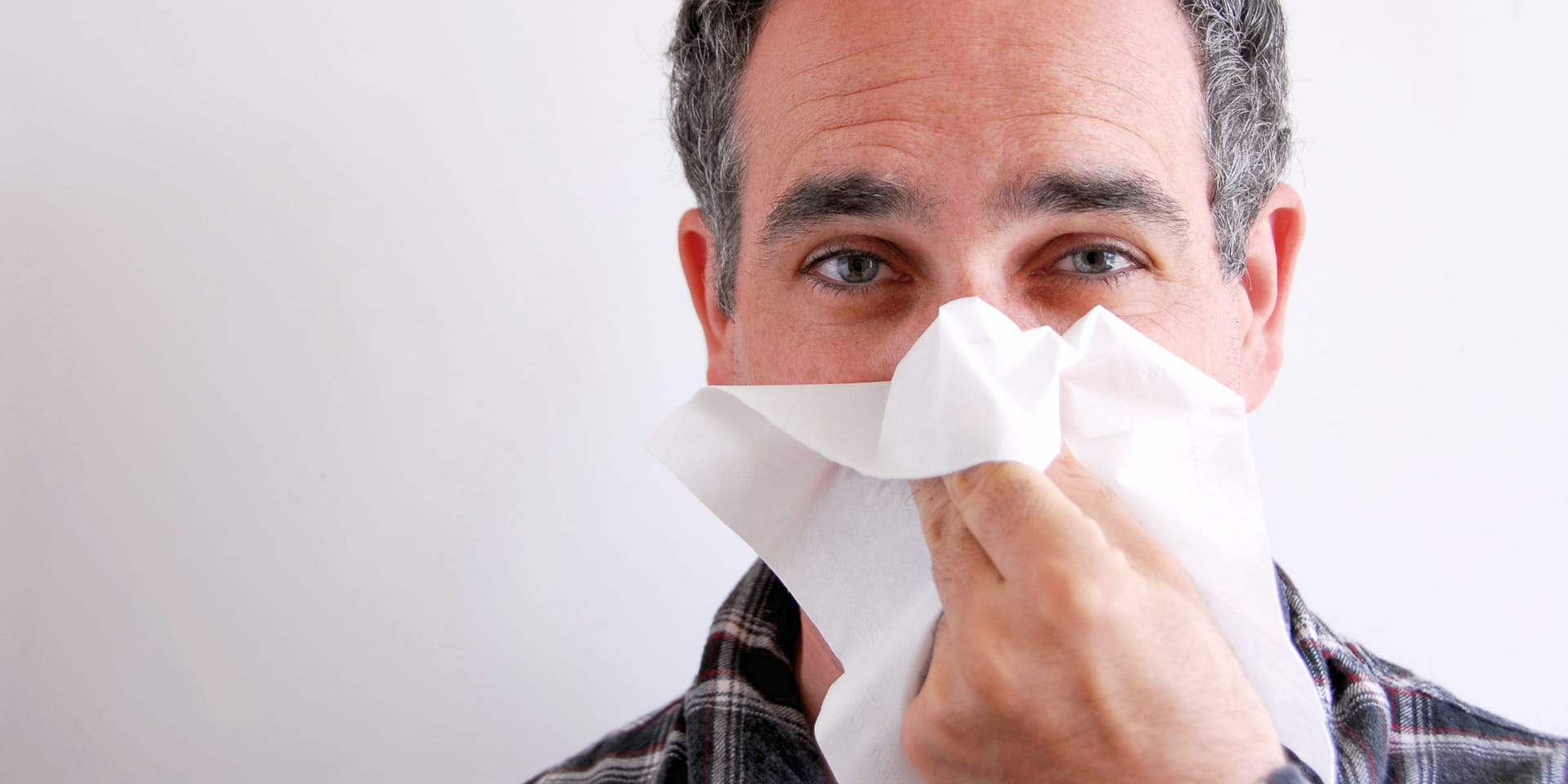Spring is in the air (finally), and so is the pollen that causes seasonal allergies. Learn how to manage your allergy symptoms and when it might be time to see the doctor.
Spring is officially here! That means the start of allergies for many of us. According to the American College of Allergy, Asthma & Immunology, allergies affect up to 50 million Americans. Seasonal allergic rhinitis, also known as hay fever, causes symptoms in spring, summer and/or early fall.
The cause is sensitivity to pollens from trees, grasses or weeds or to airborne mold spores. Hay fever doesn't have to do with hay, and usually isn't accompanied by a fever. Interestingly enough, farmers coined the phrase "hay fever" at the turn of the century because the saw symptoms during harvest season each year. A primary care physician provider may be able to provide or refer you to therapies that ease the discomfort caused by seasonal allergies.
Seasonal Allergy Symptoms
- Runny nose
- Sneezing
- Itchy eyes, mouth or skin
- Stuffy nose
- Fatigue
- Puffy, red and watery eyes
- Post-nasal drip
Common tree pollen that causes early springtime allergies include: elm, maple, birch, poplar, beech, ash, oak, walnut, sycamore, cypress, hickory, pecan, cottonwood, and alder.
Tips to Relieve Seasonal Allergies
- Start treatment early: If you take medications to control seasonal allergy symptoms, start taking them now. Don't wait for spring to be in fool bloom.
- Take steps to control your environment
- Stay indoors, if possible, when pollen counts are at their peak (mid-day and afternoon hours), and when it is wind
- Keep windows closed during high-pollen periods, use an air conditioner in the car and at home
- Avoid using window fans, which can draw pollen inside
- Wear sunglasses to reduce the amount of pollen coming into your eyes
- Shower in the evening, including washing your hair to wash away pollen
- Consider taking an over-the-counter allergy medication, and switching brands if one medication is not effective
- Wear a mask when gardening or mowing the lawn
- Do not hang clothes to dry outside, pollen may stick to clothing, towels and sheets
Know the Pollen Count
The National Allergy Bureau (NAB) will give you pollen counts and mold levels, specific to your area.
Weather websites, including, The Weather Channel, also offer allergy-tracking tools.
When to See a Doctor
If over-the-counter medications do not control symptoms or if you are experiencing severe symptoms, call your primary care physician. Your healthcare provider will evaluate your allergy symptoms and may refer you to an allergy specialist if necessary.
It's also a good idea to see the doctor if you have another condition that can make symptoms worse, like asthma or frequent sinus infections.
The doctor might suggest testing to determine the cause of the allergy. Treatment might include allergy shots, allergy drops under the tongue or allergy tablets.
About Doylestown Health
Doylestown Health is a comprehensive healthcare system of inpatient, outpatient, and wellness education services connected to meet the health needs of the local and regional community. The flagship of Doylestown Health is Doylestown Hospital, a not-for-profit, community teaching hospital with 245 beds and a medical staff of more than 600 providers who deliver the highest quality care in over 50 specialties. Renowned locally, regionally, and nationally, Doylestown Hospital provides superior healthcare and offers advanced surgical procedures, innovative medical treatments, and comprehensive specialty services. Serving Bucks County for over 100 years, Doylestown Hospital is proud to educate and train the next generation of physicians through its family medicine residency program. Ranked as one of the World’s Best Hospitals by Newsweek and 9th in Pennsylvania, Doylestown Hospital is distinguished in both infection prevention and patient experience. Doylestown Hospital is the only hospital in Pennsylvania to achieve 18 consecutive ‘A’ grades for patient safety from Leapfrog Hospital Safety Grade. Learn more at doylestownhealth.org.
